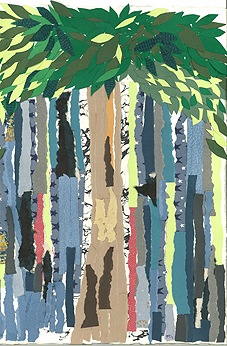Varieties of Cultural Chauvinism and the Relevance of Comparative Studies
Tilottoma Misra
This is a restrictive vision indeed, because not only does it seek to marginalize all other Indian literatures but also to create the illusory concept of a literature taking shape in isolation, inside a colonial haven, having no links with the other Indian cultures. It is significant that even sixty years after Independence, most scholars and intellectuals of Bengal are unaware of the fact that a large number of students and scholars from eastern India (the “colonial hinterland“ of Kolkata!) who had been living in students’ messes of Kolkata in the nineteenth century had been deeply inspired by the intellectual world of that metropolis. Assamese students, for instance, tried to bring in a new secular trend into modern Asamiya literature through books and journals published by them from their student messes in that city. This link between the intellectual milieu of the Bengal Renaissance and the emergence of new trends in nineteenth-century Asamiya literature has been discussed in most recent histories of Asamiya literature. But, these interesting links between literature of Bengal and those of the neighbouring regions have seldom been taken note of in the literary histories of Bengal. Bishnu De, one of the most illustrious modern Bengali poets, has admitted candidly in his foreword2 to a Bangla translation of a collection of short stories by the Asamiya writer Lakshminath Bezbaroa: “We [the Bengalis] undoubtedly have a frog-in-the-well mind-set. We were the first victims of British rule, and no doubt also the first to reap the benefit of English education, however fragmented it might have been, and the job-opportunities it provided. Probably because of these circumstances we have made little attempt to learn about the literature and culture of other regions and I am ashamed to admit that we have made so little effort to know about the languages and literatures even of our neighbours…“(translation mine). This comment is applicable also to other communities which proudly nurture a chauvinism that produces regressive ingrown cultures. In the critical studies of literatures from the so-called “margins,“ Satya P. Mohanty’s proposal for “adequately democratizing discussions of literature“ so that radical habits of critical thinking may develop, needs to be given a serious thought. While it is necessary to seek out the alternative sources of modernity in the pre-colonial literary tradition, a genuine “literary view from below“ also needs to focus on those literary traditions that had never been a part of the grand narrative of the nation. In a world where the homogenizing concepts of the nation are being effectively challenged in the new literatures produced by marginalized voices, a chauvinistic notion of cultural superiority would only alienate the peripheral voices further. The world has moved further ahead in the present century from the stage of “provincializing Europe“ to one of centering the peripheries. In such a challenging situation the vision of an inclusive world literature based on a comparative approach as suggested by Mohanty holds exciting possibilities for literary criticism. I would like to briefly touch upon what Dilip Menon calls “the unresolved question of belonging“ that disturbs the political and cultural scenario of the whole country and especially that in the peripheral regions.3 The dichotomy between tradition and modernity, which confronted colonized elites, does not hold much importance for those who had been excluded from what goes by the name of “tradition“ in mainstream culture. The emerging elites from the lower castes and the peripheral communities are often faced with a dilemma that is very different from the one encountered by the colonized elite of, say, nineteenth century India. For them, “tradition“ held only memories of domination and exclusion while colonial modernity gave them a sense of liberation from an ignominious past. Conversion to Christianity and acceptance of the English language as a language of liberation by many of the marginalized communities is a manifestation of this dilemma. I would like to mention particularly the emerging literature from the hill regions of northeast India. The tribal communities of these areas had remained largely outside the pale of “mainstream“ Indian tradition. Colonial administration had placed them in the category of “excluded“ or “partially excluded“ and facilitated the proselytizing efforts of Christian missionaries. The adoption of the roman script under missionary initiative facilitated the emergence of a written literature amongst most of the unscripted hill communities. Naturally, almost all the literature produced during this phase was Christian literature or moral fables drawn from biblical sources. Secular literature began to appear at a later phase during the post-colonial period when signs of resistance to alien influence emerged and, with it, a new awareness of identity. The movements for autonomous/independent homelands amongst these communities have often coincided with the creation of a new subjectivity that seeks to retrieve the lost traditions and to negotiate the inner space with the outer. Pages: 1 2 3 4 |
Essays in this Forum
Rethinking the Global South
by Mukoma Wa Ngugi From Indian Literature to World Literature: A Conversation with Satya P. Mohanty by Rashmi Dube Bhatnagar and Rajender Kaur Asia in My Life by Ngugi wa Thiong'o The Global South and Cultural Struggles: On the Afro-Asian People’s Solidarity Organization by Duncan Mceachern Yoon The Fault Lines of Hindi and Urdu by Sanjay Kumar Reframing Colonialism and Modernity: An Endeavour through Sociology and Literature by Gurminder K. Bhambra Varieties of Cultural Chauvinism and the Relevance of Comparative Studies by Tilottoma Misra Literature to Combat Cultural Chauvinism: A Response by Shivani Jha Is There an Indian Way of Thinking about Comparative Literature? by E. V. Ramakrishnan Modernity and Public Sphere in Vernacular by Purushottam Agrawal West Indian Writers and Cultural Chauvinism by Jerome Teelucksingh Oral Knowledge in Berber Women’s Expressions of the Sacred by Fatima Sadiki |
